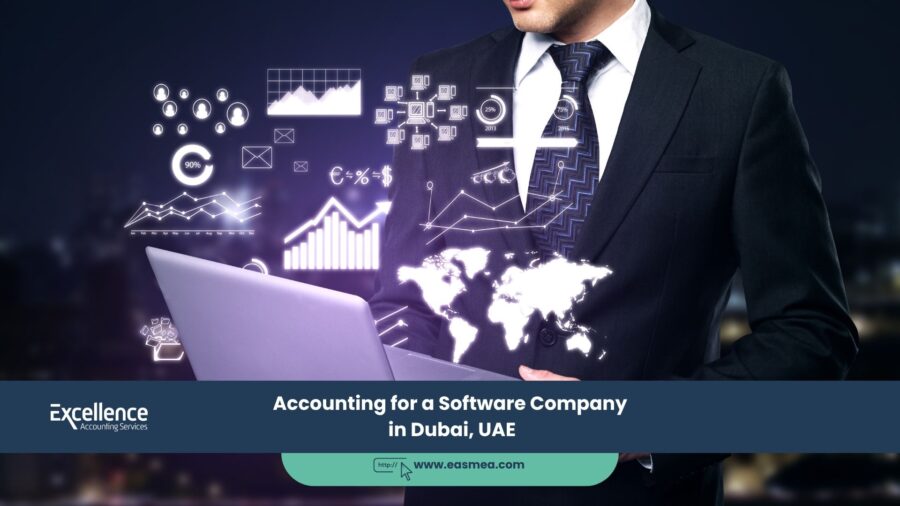Accounting for a Software Company: Preparing Financials for IPO Readiness and Due Diligence
For a high-growth software or SaaS company, an Initial Public Offering (IPO) is the ultimate milestone—a validation of its innovation, market position, and future potential. However, the road to an IPO is paved with intense scrutiny, particularly from investors, regulators, and underwriters. At the heart of this scrutiny lies one thing: the integrity of your financial data. Preparing for an IPO is not a last-minute sprint; it’s a multi-year marathon of building a robust, auditable, and transparent financial infrastructure.
Accounting in a software company is uniquely complex. Unlike traditional businesses, your most valuable assets are intangible, revenue streams are recurring, and key performance indicators (KPIs) go far beyond standard profit and loss. Getting this wrong can delay or even derail an IPO, while getting it right builds the investor confidence needed for a successful launch and a strong post-IPO performance.
This guide provides a roadmap for CFOs and finance leaders of software companies on the critical accounting steps for achieving IPO readiness. We will cover the transition to IFRS, the nuances of SaaS revenue recognition, accounting for R&D, and the metrics that will be dissected during the due diligence process.
Key Takeaways
- Start Early: IPO readiness is a 2-3 year journey. Start building institutional-quality financial processes long before you plan to go public.
- IFRS 15 is Non-Negotiable: Correctly applying IFRS 15 for revenue recognition from contracts is the single most critical accounting challenge for SaaS companies.
- Metrics Matter: Investors will scrutinize your SaaS metrics (MRR, ARR, Churn, LTV:CAC) as much as your IFRS financials. Your accounting system must generate this data accurately.
- Audited Financials are a Must: You will need 2-3 years of audited financial statements prepared under IFRS. This requires a strong relationship with a reputable audit firm.
- Internal Controls are Key: A robust system of internal controls over financial reporting is essential to pass due diligence and comply with post-IPO requirements.
The Foundations of IPO Readiness: From Startup to Public Company
The transition from a private startup to a public company is profound. The informal, growth-focused accounting of the early days must be replaced with a rigorous, compliant, and transparent system capable of withstanding public scrutiny. This involves several foundational shifts.
1. Adopting IFRS and Securing Audited Financials
Private companies often use simpler accounting standards. However, for most major stock exchanges, including those in the UAE and internationally, you will need to present at least two to three years of historical financial statements audited under International Financial Reporting Standards (IFRS). This conversion can be a massive undertaking, requiring a complete restatement of prior periods. A thorough accounting review is the first step in this process.
2. Mastering IFRS 15: Revenue from Contracts with Customers
For SaaS companies, IFRS 15 is the rulebook. It dictates how and when you recognize revenue. The standard’s five-step model requires a detailed analysis of every customer contract to:
- Identify the contract.
- Identify all distinct performance obligations (e.g., software access, setup services, technical support).
- Determine the transaction price.
- Allocate the price to each performance obligation based on its standalone selling price.
- Recognize revenue as (or when) each performance obligation is satisfied.
Getting this wrong is a major red flag for investors and can lead to significant revenue restatements. For example, one-time implementation fees must often be deferred and recognized over the expected customer lifetime, not booked upfront.
3. Accounting for R&D and Software Development Costs (IAS 38)
Under IAS 38 Intangible Assets, Research & Development costs are treated differently.
- Research costs are always expensed as incurred.
- Development costs for new software can be capitalized as an intangible asset on the balance sheet, but only after technical feasibility, commercial viability, and the ability to generate future economic benefits have been established.
This distinction is crucial. Aggressively capitalizing costs can boost short-term profits but will be heavily scrutinized by auditors. A clear, consistent policy is essential. Our blog on R&D expenditure provides more detail.
4. Stock-Based Compensation (IFRS 2)
Employee stock options are a key part of compensation in tech companies. Under IFRS 2, the fair value of these options must be calculated (using models like Black-Scholes) and recognized as an expense over the vesting period. This is a complex area requiring expert business valuation skills and has a significant impact on reported profitability.
Your story is told through numbers. In an IPO, your SaaS metrics tell the story of your growth, while your IFRS financials prove the story is true. Both must be flawless.
What Excellence Accounting Services (EAS) Can Offer
The journey to an IPO is complex and fraught with financial challenges. Excellence Accounting Services acts as your strategic partner, ensuring your financials are not just compliant, but a compelling part of your investment story.
- IPO Readiness Assessment: We conduct a comprehensive gap analysis of your current accounting policies, systems, and controls against public company standards.
- IFRS Conversion Services: Our team manages the entire process of converting your historical financials to IFRS, preparing you for the audit process.
- Due Diligence Support: We help you prepare for the intense scrutiny of due diligence by organizing your data, anticipating investor questions, and ensuring all financial information is robust and defensible. See our due diligence services.
- SaaS Metrics & Financial Modeling: We help you build the models to track and report on the key SaaS metrics investors demand, ensuring they are derived from and reconciled with your core accounting data. This is a key part of our CFO services.
- Internal Control Implementation: We assist in designing and documenting the internal controls over financial reporting required to operate as a public company, drawing on our expertise in internal audit.
Frequently Asked Questions (FAQs)
Ideally, 24 to 36 months before your target IPO date. This provides enough time to implement new systems, complete several audit cycles under IFRS, and build the internal processes expected of a public company.
Improper revenue recognition under IFRS 15 is the most common and severe issue. Others include incorrect classification of development costs, miscalculation of stock-based compensation, and weak internal controls that lead to a lack of confidence from auditors and underwriters.
Monthly Recurring Revenue (MRR) and Annual Recurring Revenue (ARR) are operational metrics showing the predictable revenue from subscriptions. IFRS revenue is an accounting measure that must comply with IFRS 15, which may require deferring some revenue components (like setup fees) or adjusting for contract modifications. They are often close but rarely identical.
This can be challenging if you don’t sell services separately. You may need to use an estimation approach, such as an “adjusted market assessment” (what would competitors charge?) or an “expected cost plus a margin” approach. This policy must be well-documented and consistently applied.
The incremental costs of obtaining a contract (like sales commissions) should be capitalized as an asset and amortized over the period the related revenue is recognized, which is often the expected customer life. They are not expensed immediately upon payment.
You need controls over your entire financial reporting process. This includes segregation of duties, formal review and approval processes for journal entries and payments, robust controls over your accounts payable and accounts receivable, and IT general controls over the systems that house financial data.
Investors will scrutinize your tax compliance history. You must have a clear record of timely and accurate tax filings. Any unresolved tax disputes are a major red flag. Your effective tax rate and any deferred tax assets or liabilities on your balance sheet will be key components of the financial analysis. Expert UAE corporate tax advice is critical.
This occurs when a company issues stock options to employees at a price significantly below the fair value determined in a recent funding round or the anticipated IPO price. Tax authorities and regulators may view this as a form of hidden compensation, leading to accounting and tax complications that must be resolved before an IPO.
It’s highly unlikely. IPO preparation requires a sophisticated finance team with experience in IFRS, SEC/public company reporting, and complex financial modeling. This is why many pre-IPO companies hire a full-time CFO and engage specialized advisory firms like EAS.
You must correct it. This will likely involve restating your historical financial statements and having them re-audited. While this can be a painful and time-consuming process, transparency is paramount. Hiding an error is far more damaging than correcting one and explaining it to potential investors.
Conclusion: Building a Foundation of Trust
The path to a successful IPO for a software company is built on a foundation of financial integrity. It requires a forward-looking approach to accounting, adopting public company standards years in advance, and understanding that your numbers tell your most important story.
By mastering the complexities of revenue recognition, building robust internal controls, and presenting clear, defensible metrics, you don’t just prepare for a transaction. You build the lasting trust with investors that is essential for long-term success as a public company.
From Private Ambition to Public Success.
Let Excellence Accounting Services be your guide on the path to IPO. We provide the expertise and support to transform your financials into a powerful asset for your public offering.




